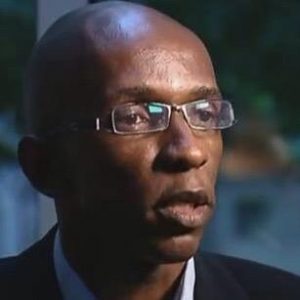The Presidential term limit alone in Rwanda won’t solve the ethnical and political issues that have plagued Rwandan society since the 1959 social revolution that was followed by independence in 1962.
Democratic institutions, political representation of the politically minority that allows them to have a political voice which protect their interests and provide them with physical, political, economic and social security as well as fundamental liberties and freedom including the freedom of speech, are paramount and essential if Rwanda wants to have a bright future, a sustainable social and economic development and security.
The presidential term limit, however, brings a new dimension politically that Rwanda have never experienced since the First Republic in 1961 which is the peaceful transition of power.
In fact the 2003 Rwandan constitution sealed its 101 article when it comes to presidential terms which were limited to two. The spirit behind such thinking was to allow a peaceful transition of power and to abandon the old demons of bloodshed when the power was acquired through military or armed rebellion coup d’Etat.
The Rwandan government, parliament and political parties went on campaign to explain to the population about such novelty in constitution and its paramount importance and sincerely, those involved in writing it at that time believed in that constitution fully.
So what has changed?
I identified the following 4 important reasons behind Kagame reluctant to leave the power.
- In 2008 the United Nations Commissioner for Human Rights commissioned a team to investigate killings committed against Congolese and Hutu Rwandan refugees who had sought refuge in Democratic Republic of Congo. The findingswere shocking and send a thunder storm at the helm of Rwanda political arena. The report found that as result of proxy war engineered by Rwanda leadership, the Rwandan army systematically killed Hutu refugees and Congolese alike and concluded that if such killings were proved before a competent court, they could be characterised as crimes of genocide.
- At the same time the Spanish court indicted 40 higher ranked officers in the Rwandan army for the crime against humanity committed against Rwandans and Spanish Priests killed by the Rwandan army after the 1994 genocide.
- In 2012, a UN group of expert published a report accusing Rwanda of fuelling conflicts in DRC by supplying weapons and troops to a Congolese rebel group which was accused of committing various human rights violations and crimes against humanity.
- Finally there is increasing strong voice of genocide survivors who are accusing Kagame as having sparked the genocide by allegedly ordering the assassination of the president Habyalimana.
These thundery elements are behind the reasons why the Rwandan constitution is about to change so that Kagame can stay on the power. Kagame has enjoyed the presidential immunity, however his fate is more pointing toward national and international justice once his immunity is lifted.
This is a dilemma for Paul Kagame. Consequently clinging on power as long as possible so that he can be protected by the presidential immunity seems to be the best and only way he can avoid possible arrest and prosecutions.
By observing all recent manoeuvres to facilitate Kagame to stay on the power, I can realise that he is hoping that by 2034 (when the new constitution will allow him to stay until) the world will be a different place by then, those UN reports would have been forgotten and those campaigning for the justice will more likely dead or tired.
He also hope that as in 2034 more than 85% of the Rwandan population would have been children during 1994 genocide or born after it, they would have swallowed his designed and publicised version of the Rwandan history particularly during the genocide and subsequent alleged killings and massacres he is accused of having ordered and masterminded. Thus that generation which will be majority of Rwandans would be able to protect him.
Rwandan government and Kagame supporters current arguments for changing the Constitutions such as ‘’we do not change a winning team’’ or ‘’Rwandans know what is the best for them’’ or ‘’we are just responding to the demand of the people ‘’ are all designed to mislead the international community about the really reasons behind the constitutional change.
The referendum process that will give a green right to the constitutional change will undoubtedly demonstrate a huge popular will of the proposed changes.
That apparent popularity is more driven by fear of Paul Kagame oppressive regime and hash experiences of his totalitarian governance system than any publicised social and economic achievements nor any wish to have more years of Kagame leadership.
What next? The YES vote is expected to win because it is endorsed by the President behind the scene and his government publicly.
Due to all above mentioned elements after 2017 election which he will win incontestably; President Kagame will mostly push to be President until at least 2034.
However, the message that Kagame is sending to Rwandans through the recent constitution change manoeuvres is “If you want your freedoms, democracy and political participation forget the peaceful means to access them, it won’t happen as long as I am the president, I have just built a wall between you and your Rights. If you want to gain them break that wall”.
Eventually Rwandans who are discriminate against, oppressed, hungry for political participation but cannot get within their reach will probably end up in revolutions or rebellions.
Consequently the acquiring fundamental freedoms, installing democracy and power transfer that would have occurred peacefully might end up in bloodshed and if it happens historians will subsequently write ” the history has repeated itself ”.
René Claudel Mugenzi





























































